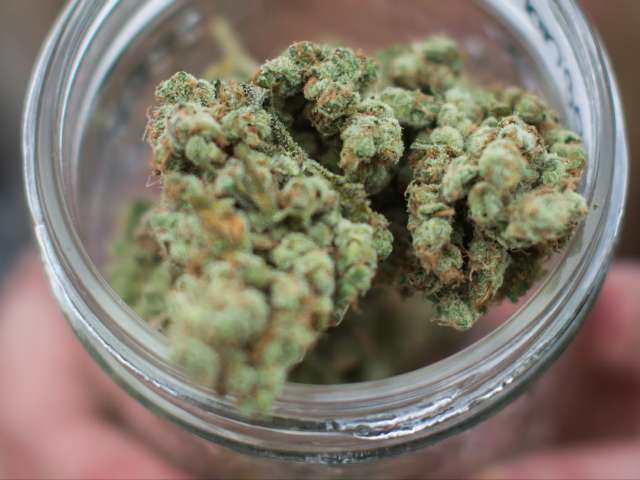ALBANY — Gov. Andrew Cuomo’s drive to get approval for marijuana legalization by April 1 faces an uphill climb as lawmakers point to what they see as flaws in his proposal to allow New Yorkers to use a drug that remains illegal under federal law.
Cuomo brushed off the concerns Friday, insisting in a public radio interview, “I’m not ready to give up yet.”
But his proposed $175 billion state budget, released last month, included no new money to fund what some lawmakers see as an urgent need for additional drug recognition experts for police departments. Police groups have said they expect legalization of cannabis will inevitably lead to marijuana users getting behind the while they are under the influence of the weed.
“I am extremely concerned that our state is on one hand getting ready to take the revenue from selling marijuana, but is far from ready when it comes to road safety,” said Sen. Todd Kaminsky, D-Long Beach, a former federal prosecutor.
Under questioning from Kaminsky at a hearing on the state budget, Christopher Fiore, a State Police deputy superintendent, conceded he knew of no new funding for police to deal with law enforcement concerns relating to the marijuana legalization Cuomo wants this year. Fiore said he expects State Police will be able to use the resources made available in Cuomo’s budget to meet all of its needs.
Kaminsky noted some other states are already experimenting with oral fluid tests to help police determine if a motorist who appears to be under the influence of drugs had been using pot.
Meanwhile, Thomas Mungeer, the head of the New York State Troopers Police Benevolent Association, projected the state will need a cadre of 400 drug recognition experts, a big boost from its current fleet of 70 such specialists
The state, under the proposed marijuana legislation, would make licenses available through auctions for marijuana growers, wholesalers and retailers. But it also allows counties to opt out of allowing marijuana retail sales, and without knowing how many counties will keep pot outside their borders, it will be challenging to come up with a price for those licenses, according to industry insiders.
Cuomo’s legislation hit a major speed bump this week when Assembly Speaker Carl Heastie, D-the Bronx, signaled that he is in no rush to embrace the proposal before a budget negotiations are slated to conclude in late March. “I want to get it right, rather than beat a ‘time clock,'” Heastie said in a tweet.
It is also unclear as to when and how the state will proceed with the sealing of records stemming from marijuana arrests in New York, a plan favored by many advocates for legalization.
The debate in Albany is being closely followed by the New York State Association of Counties, the Association of Towns, advocates for drug counseling agencies and many others.
Under Cuomo’s plan, the state would create a new office of Cannabis Managment, an agency that would oversee both New York’s existing medical marijuana program as well as the licensing of concerns involved in recreational pot. It would be headed by an executive director who has not yet been named.
Gerry Geist, the director of the New York Association of Towns, said municipal governments want to be included in the opt-out provisions. “We believe we should have a seat at the table because, if this goes forward, the impacts are going to be felt at the local level,” Geist said in an interview.
Marijuana legalization has had a bumpy start in several states that have authorized the drug. For instance, in Oregon, where voters approved legalization in 2014, the state’s marijuana program was criticized in an audit this week for an inadequate testing system to detect contaminants while the production of medical marijuana has ended up on the black market in other states.
Cuomo’s budget estimates the state would eventually reap $300 million in revenue from legal pot.
The governor acknowledged Friday that he expects complications in legislative negotiations. He said the legislation for recreational marijuana should not end up bankrupting investors who have a stake in medical marijuana dispensaries that now dot the state.
Cuomo has called marijuana legalization one of his highest priorities this year, insisting it would come in the “first 100 days” of his third term. The phrase “first 100 days” is often associated with evaluations of a presidency in its first year. Cuomo began his ninth year as governor last month.
Credit: thedailystar.com






